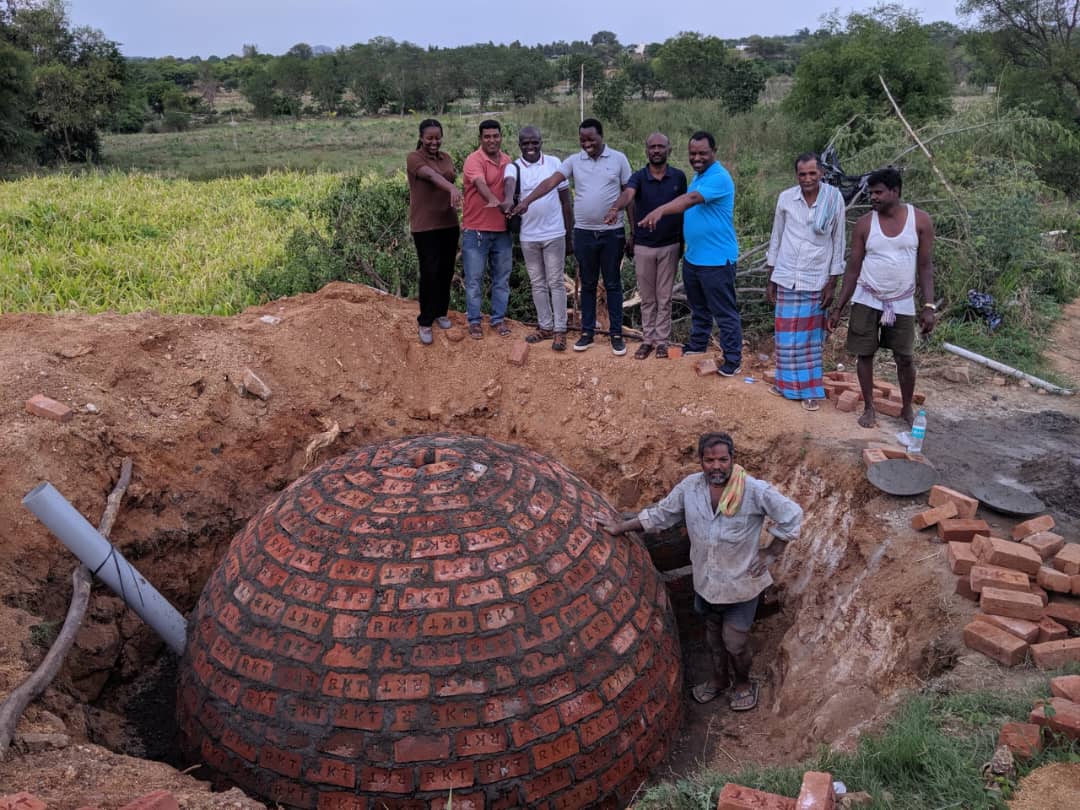This report is intended to provide key partners and founding members of the organization with information concerning the project planned for, projects implemented, the challenges encountered, the manner by which they were dealt with, and the impact in the communities where projects are implemented with and for members in the communities.

Photo: RDIS staff in India with the ADATS team during a technical capacity-building session
The training of RDIS staff in India, held from 13th to 27th May 2025 at ADATS-Bagepalli in Kora District, Karnataka, was aimed at building technical capacity for the implementation of a biodigester carbon project in Rwanda. This initiative supports RDIS's strategic objectives to develop staff capacity, reduce global warming, and deliver community-centered sustainable development.
Projects Implemented
Participants, including RDIS executives and technical staff, underwent practical training in the construction and monitoring of domestic biodigester units. The training featured hands-on involvement in excavation, dome construction, piping, and the use of a digital monitoring system (Tristle Biogas Solution). RDIS also collaborated with ADATS staff and village members, and visited functioning units serving nearly 10,000 households.
Challenges Encountered and Responses
Key challenges included quality assurance in raw material mixing and safety concerns around biodigester maintenance. To address this:
- RDIS resolved to standardize mixing practices with controlled cemented areas.
- The organization committed to developing a safer, advanced biodigester cleaning method.
- Plans for improved monitoring through digital tools and applications were established.
Planned and Future Projects
RDIS plans a pilot phase of five biodigesters in five districts (Muhanga, Gisagara, Nyaruguru, Nyamagabe, Rusizi) starting July 2025, followed by a scale-up phase to four more districts. A business plan and risk assessment are scheduled for completion by June 2025, ensuring readiness for implementation and partner engagement.
Community Impact
The initiative promises multiple benefits: clean energy access, environmental protection, carbon credit revenues, and community empowerment through skills transfer and income generation. Women end-users in India, for example, have already benefited from carbon credit revenues, a model RDIS aims to replicate.
For further information, please download the full report here.
